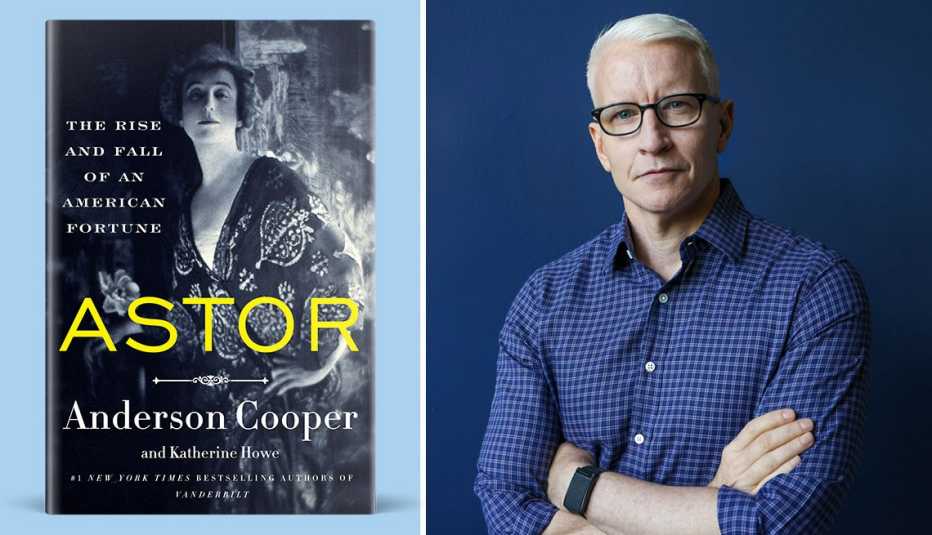Staying Fit


Anderson Cooper begins his new book Astor (Sept. 19), cowritten with Katherine Howe, with an anecdote about dining at Mortimer’s in Manhattan as a child with his mother, Gloria Vanderbilt, where he met Brooke Astor and politely shook her white-gloved hand. Years later, Cooper was working as a waiter at Mortimer’s when he crossed paths with her again. He said, “Hello, Mrs. Astor," and, as he recalls, she glanced at him — or, rather, through him — and walked silently past.
It was a seminal moment, Cooper, 56, says, “that got me thinking about what kind of person did I want to be? What side of the table did I want to be on, if I wanted to be at that table at all?”


AARP Membership— $12 for your first year when you sign up for Automatic Renewal
Get instant access to members-only products and hundreds of discounts, a free second membership, and a subscription to AARP the Magazine.
That table, of course, is reserved for the elite — the absurdly rich, the 1 percenters, the inheritors of vast fortunes. He and Howe explored his own family’s place at that rather unpleasant (in Cooper’s view) table in their bestselling 2021 book, Vanderbilt: The Rise and Fall of an American Dynasty.
The pair now turn to the Astors in Astor: The Rise and Fall of an American Fortune, offering a fascinating, frank and extremely critical portrayal of a clan prone to both greed and miserliness, in the unhappy grip of a fortune that was created with “very real brutality.”
It all began with John Jacob Astor, the son of a German butcher, who came to America in the 18th century and grew rich in the beaver fur trade, then New York City real estate. Subsequent generations would go on to manage and be defined by that obscene wealth — in part by acting as slumlords — before their empire diminished in a sad soap opera of infighting and scandal. (Brooke Astor’s son Anthony Marshall, you may recall, was convicted of larceny, among other things, in 2009 for looting his mother’s fortune while she was incapacitated by Alzheimer’s disease.)
We talked to Cooper about the new book, being a Vanderbilt and more.
You write in the book that it was Katherine’s idea to tackle the Astors after you wrapped up Vanderbilt. What was your reaction to the idea?
I just knew I wanted to do another book with her — I loved the experience with Vanderbilt — and I didn't have another idea. Then once I started reading and learning about [the Astors], it became much clearer to me that this made absolute sense. But [as with Vanderbilt], I was less interested in the business side and more interested in the human stories and the pathology of the moneymaking and its ripple effects over the generations.




































































More From AARP
Inside the Mind of Elon Musk: What We Learned From His Biography
Walter Isaacson's bio answers many questions about the tech mogul9 Essentials for a Happier Life, According to Oprah Winfrey
Her new book ‘Build the Life You Want’ with Arthur C. Brooks offers an action plan for ‘happierness’
Streisand and Winkler Among the Celebs With Big Memoirs Out This Fall
Top Hollywood stars and music legends describe love, pain and dreams dashed and fulfilled on their roads to fame